The conclusions of the United Nations Independent Investigation on Burundi (UNIIB) published on Tuesday 20 September, stimulated much attention. The report accuses Bujumbura of grave human rights violations.
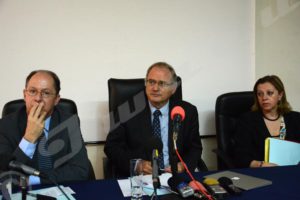
Experts visited Burundi from 1 to 8 March and from 13 to 17 June, 2016
The UNIIB report considers that these violations can be qualified as crimes against humanity and warns against a probable genocide. This report is about violations and abuses of human rights committed from 15 April 2015 to 30 June 2016. Experts delegated by the UN visited Burundi from 1 to 8 March and from 13 to 17 June 2016. They were able to make a total of 227 interviews in the provinces of Bujumbura, Makamba and Gitega as well as in the Democratic Republic of Congo, Rwanda, Tanzania and Uganda with, among others, 182 refugees.
The report documented 564 cases of summary executions, assassinations, arbitrary detentions, torture and sexual violence. The group of experts who conducted this investigation accused Burundian authorities of serious human rights violations. The report points an accusing finger at security forces, often with the support of the youth movement of the ruling party, the Imbonerakure. According to the report, the victims of such acts of violence would be citizens opposed to the third term of President Pierre Nkurunziza. It indicates that people were kidnapped and held in places officially unknown like bars, residences of personalities from the party in power or the office of the ruling party CNDD-FDD. The investigation reveals 17 forms of torture and ill-treatment, including the fixing of weight to the testicles of the victim, crushing the fingers and toes with pliers, progressive burning on blowtorch or being forced to sit in acid, on broken glasses or nails.
Crimes against humanity or genocide?
Investigators indicate that some of these serious violations constitute crimes against humanity, and require independent international judicial proceedings to bring the alleged perpetrators to justice. “Given the history of the country, the danger of a genocidal crime is great, “say the UN investigators.
The report also highlights the muzzling of journalists, members of civil society organizations and defenders of human rights. According to these investigators, their conclusions want to bring the government of Burundi, the African Union, the UN Council of Human Rights, the Security Council and other international actors to adopt strong measures to preserve the achievements of the Arusha Agreement which allowed Burundi to experience a long period of peace. These include the immediate establishment of an international commission of inquiry and the reviewing of the membership of Burundi to the Council of Human Rights. Since the creation of the Council 10 years ago, this is the first time that a UN organization proposes to exclude a member of the Council. The report also proposes a possible invocation of Chapter VII of the Charter of Nations, if the violations persist, and if the government continues not to comply with resolution 2303 of the Security Council, authorizing the deployment of a UN police force. The UN investigators finally ask the African Union and the UN for a gradual withdrawal of Burundian troops from peacekeeping missions, if the situation goes on.
Bujumbura refers to the report as a conspiracy…
Burundi government rejects the report and denounces a plot hatched up by its opponents.
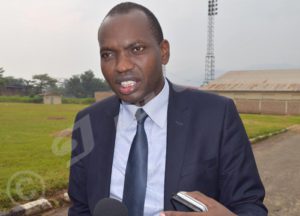
Willy Nyamitwe: “the government released a 40-page document responding to this biased and politically motivated report.”
“The investigators’ accusations (…) are politically motivated and based on anonymous and unverified testimonies”, “Cabaret gossips appear in the report (…) because investigators did not do their work properly,” “On RFI, I described the investigators (…) as lazy, their report was based on false evidence and gossip. ” @UNHumanRights did not respect the rules of use by publishing the report without the @BurundiGov response”. These are some of the tweets of Willy Nyamitwe after the release of this UNIIB report.
Less than 24 hours after the publication of the report, the senior advisor in charge of communication at the office of the president announced that the government has released a 40-page document “responding to this biased and politically motivated report”. It was transmitted to the UN Committee on Human Rights.
“Burundi regrets, however, that the allegations contained in the report of the experts do not reflect the reality on ground,” indicates the report. Bujumbura says “it is harassed by such reports, a tactic that opponents of Burundi government have found to influence decisions of the treaty bodies in their favor”. The government of Burundi says it is convinced that” it is a stratagem that those who opted to criticize democratically elected institutions found, to move the battle on another front, having failed inside the country. ”
The government of Burundi states furthermore that this unbalanced report is based on the testimonies of its opponents or Burundians who took refuge in Rwanda, “objects of manipulation by this hostile country to Burundi that has a responsibility for violent acts committed in Burundi.”For him, it is a tendentious report, whose recommendations are very similar to those of radical opponents.
A refuted report
Bujumbura is surprised by the absence of armed groups destabilizing Burundi in this report. “What is even more serious and unbearable, is that these experts downplay excessively the role of Rwanda in the crisis that Burundi has just crossed, making a deliberate choice to ignore the different reports about that, including that of UN group of experts on the DRC.”
The reaction of Bujumbura goes back to periods of insecurity, when the detractors of democracy wanted to destabilize democratically elected institutions and this since 2005 because for Burundi government, insecurity does not date from 2015 as alleged in the UNIIB report.
Paragraph by paragraph, the government destroyed the arguments of the UN report. It takes cases that the report mentions and gives another version, accusing the experts of not having checked the facts reported, or giving false information. “Ultimately, the Government notes that almost all the conclusions and recommendations of the UNIIB are as wrong as its non-factual analyses.” Bujumbura therefore categorically refutes the conclusions of the investigation and asks the Council not to adopt it. “However, the government reserves the right to refer to the recommendations that it judges to be in the direction of improving the level of enjoyment of human rights by all Burundians and the country’s inhabitants.”
Reactions
Armel Niyongere, president of ACAT Burundi
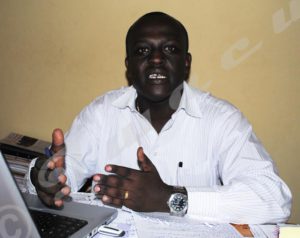 “We welcome the report of the experts and support the recommendation that aims at setting up an independent commission of inquiry. We call on the international community to support the opening of the preliminary investigation by the International Criminal Court (ICC).
“We welcome the report of the experts and support the recommendation that aims at setting up an independent commission of inquiry. We call on the international community to support the opening of the preliminary investigation by the International Criminal Court (ICC).
This report has a positive impact on the current situation because it shows that now the United Nations begin to address the question of Burundi. Furthermore, this report is a legal one and the ICC may consult it for its investigative work. We ask the United Nations to adopt a resolution to implement the recommendations of these independent experts. ”
Gilbert Bécaud Njangwa, president of the Onelop-Burundi
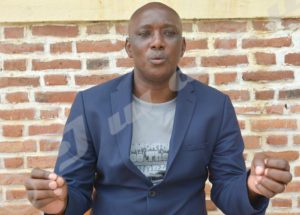 “Will this sung genocide be perpetrated against people who have 50% in the army, 50% in the police and 40% in the leading bodies of the country? If these UN experts know how to calculate, are the minority these people who have 40% in the highest institutions of the country?
“Will this sung genocide be perpetrated against people who have 50% in the army, 50% in the police and 40% in the leading bodies of the country? If these UN experts know how to calculate, are the minority these people who have 40% in the highest institutions of the country?
These experts should say it straight out if they do not want Burundi to be led by Burundians.
This genocide is just a fabrication against our country. When these experts were in Burundi, nobody touched them. They ate Mikeke(kind of fish from Lake Tanganyika) with complete peace of mind. It’s a pity that they release today a report as if they had escaped death. ”
Jeremie Minani “A confirmation of a plan to exterminate opponents.”
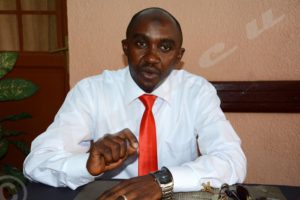 For the spokesman of Cnared Giriteka, the opposition platform, the UN investigation report confirms what this platform has been repeating for more than a year, notably the existence of a plan to exterminate all the people who oppose the third term of Pierre Nkurunziza. According to him, the international community is called out to protect the Burundian civilian population, and especially to impose peace in Burundi.
For the spokesman of Cnared Giriteka, the opposition platform, the UN investigation report confirms what this platform has been repeating for more than a year, notably the existence of a plan to exterminate all the people who oppose the third term of Pierre Nkurunziza. According to him, the international community is called out to protect the Burundian civilian population, and especially to impose peace in Burundi.
As for the figures of 564 cases of killings, Minani said that, though they may be inferior to the real figures on the ground, this report should call out the United Nations. “The UN Security Council needs to be pushed to activate mechanisms of its responsibility to protect the population in imminent danger, citing especially the chapter of the UN Charter which authorizes the recourse to force to safeguard peace, “he insists.
“No genocide in Burundi”
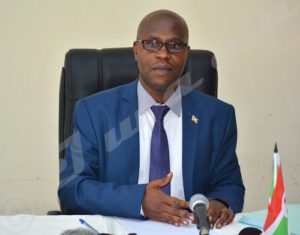 “We reaffirm that there is no category of the population that is affected by genocide,” said Martin Nivyabandi, Minister in charge of human rights, on Thursday, 22 September, at a press conference in Bujumbura.
“We reaffirm that there is no category of the population that is affected by genocide,” said Martin Nivyabandi, Minister in charge of human rights, on Thursday, 22 September, at a press conference in Bujumbura.
Reacting to the recent report of UN experts, he said that during their stay in Burundi, they met state institutions concerned with the issue of human rights.
Unfortunately, he lamented, the report does not take into consideration the progress on the ground, yet recognized by government partners, including the Office of the UN High Commissioner for Human Rights based in Bujumbura. Nivyabandi stated, “This is rather a political statement than a technical report.” Mr. Nivyabandi finds that the report is based much on information drawn from distorted and exaggerated reports of some organizations.

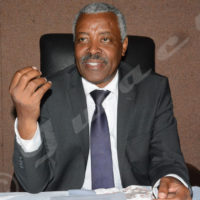
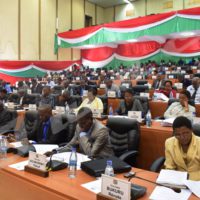
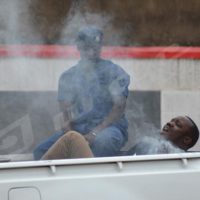













 IWACU Open Data
IWACU Open Data

